Search
Remove Ads
Advertisement
Search Results

Video
Cradles of Civilization - Sargon of Akkad
In the fifth part of his lecture, Dr. Neiman explains that as the writing system developed, the Sumerian and Akkadian civilizations start describing their world. The autobiography of the Akkadian King Sargon of Akkad is recounted.

Definition
Sargonid Dynasty
The Sargonid Dynasty was the last ruling house of the Neo-Assyrian Empire from 722-612 BCE, beginning with the reign of Sargon II and ending with fall of the Neo-Assyrian Empire. Some of the most famous kings in the history of Assyria come...
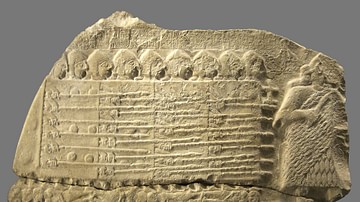
Definition
Mesopotamian Warfare
Ancient Mesopotamian warfare progressed from companies of a city's militia in Sumer to the professional standing armies of Akkad, Babylon, Assyria, and Persia and from conflicts over land or water rights to wars of conquest and political...
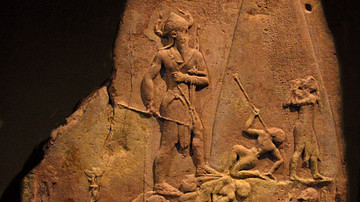
Article
The Curse of Agade: Naram-Sin's Battle with the Gods
The Curse of Agade is a story dated to the Ur III Period of Mesopotamia (2047-1750 BCE) though thought to be somewhat older in origin. It tells the story of the Akkadian king Naram-Sin (r. 2261-2224 BCE) and his confrontation with the gods...
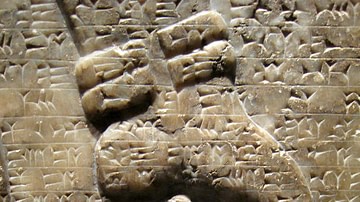
Article
Truths Wrapped in Fiction: Mesopotamian Naru Literature
Originality in literary compositions in the ancient world did not carry the same weight and value as it does today. In recent centuries, authors have been applauded for the creation of original works and have been derided for plagiarism or...

Definition
Enheduanna
The Akkadian poet Enheduanna (l. 2285-2250 BCE) is the world's first author known by name and was the daughter of Sargon of Akkad (Sargon the Great, r. 2334-2279 BCE). Whether Enheduanna was, in fact, a blood relative of Sargon's or the title...
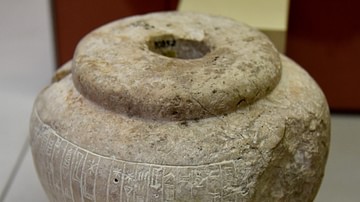
Definition
Gutians
The Gutians were a West Asiatic people who are thought to have lived around the Zagros Mountains in a region referred to as Gutium. They had no written language and all that is known of them comes from their enemies, including the Akkadians...

Definition
Mesopotamian Government
Ancient Mesopotamian government was based on the understanding that human beings were created to help and serve the gods. The high priest, king, assembly of elders, governors, and any other officials were recognized as stewards chosen by...
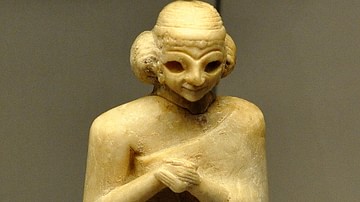
Article
Women in Ancient Mesopotamia
The lives of women in ancient Mesopotamia cannot be characterized as easily as with other civilizations owing to the different cultures over time. Generally speaking, though, Mesopotamian women had significant rights, could own businesses...
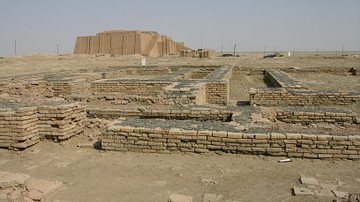
Definition
Ur
Ur was a city in the region of Sumer, southern Mesopotamia, and its ruins lie in what is modern-day Tell el-Muqayyar, Iraq. According to biblical tradition, the city is named after the man who founded the first settlement there, Ur, though...